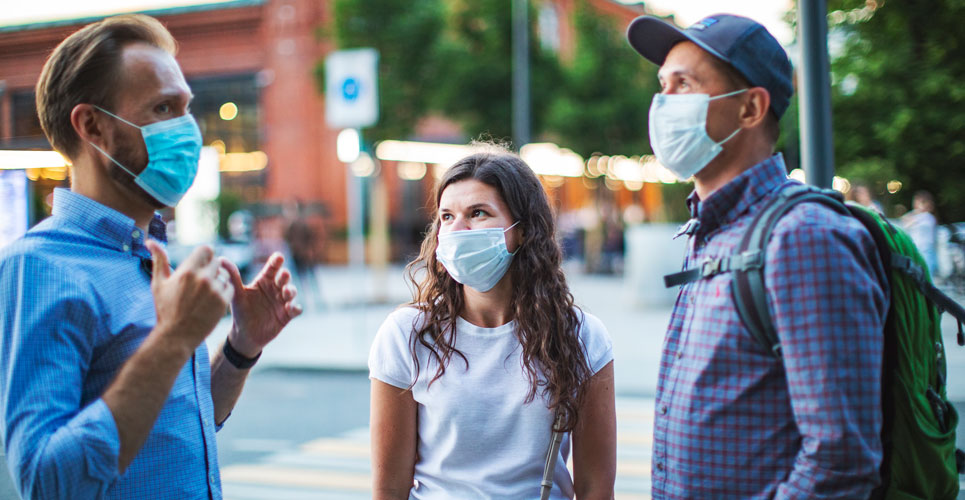Observational data show that face masks mitigate the transmission of COVID-19 but is this mediated via a protective effect or through reduced transmission from infected individuals.
In light of this uncertainty, a team from the Department of Cardiology, Copenhagen University Hospital, Denmark, conducted a randomised controlled trial to assess whether the recommendation to wear a surgical face mask when outside the home among others, further reduced the wearers’ risk of infection with COVID-19 when other public health measures, e.g. social distancing, frequent hand washing were already in place.
The team conducted the study in Denmark between April and June 2020. During this time, shops and cafes were closed and use of facial masks as an additional protective measure, was not recommended. Eligible participants were aged 18 years and over without current or prior COVID-19 symptoms or a formal diagnosis and who reported being outside for at least 3 hours per day without wearing a mask. All participants were randomised to either mask wearing or control (no mask) group. The former group were asked to use a mask when outside the home for the next four weeks and provided with a oropharyngeal/nasal swab after one month. In addition, those who were positive after the oropharyngeal swab test, also performed a self-test lateral flow assay antibody test. The primary outcome measure was COVID-19 infection, which was defined in terms of a positive PCR test and the development of COVID-19 antibodies during the study period.
Findings

A total of 6024 patients with a mean age of 47 years (64% female) were included and randomised 1:1 to either mask wearing or control and 4862 completed the study. Infection with COVID-19 occurred in 42 (1.8%) mask wearers and 53 (2.1%) control participants, which was not significantly different (odds ratio = 0.82, 95% CI 0.54 to 1.23, p = 0.33). Based on these findings, the authors suggested that surgical face masks worn outside of the home did not reduce the incidence of COVID-19 infection. However, they also noted that their results were inconclusive and compatible with either a 46% decrease or 23% increase in infection and it therefore remained unclear as to the value of face masks in addition to current control measures.
Citation
Bundgaard Het al. Effectiveness of adding a mask recommendation to other public health measures to prevent SARS-CoV-2 Infection in Danish Mask Wearers. Ann Intern Med 2020

